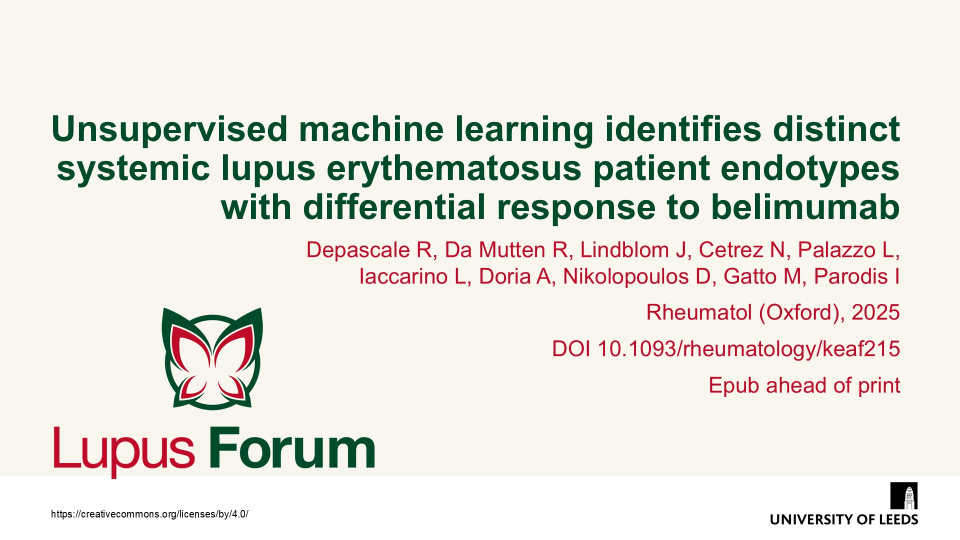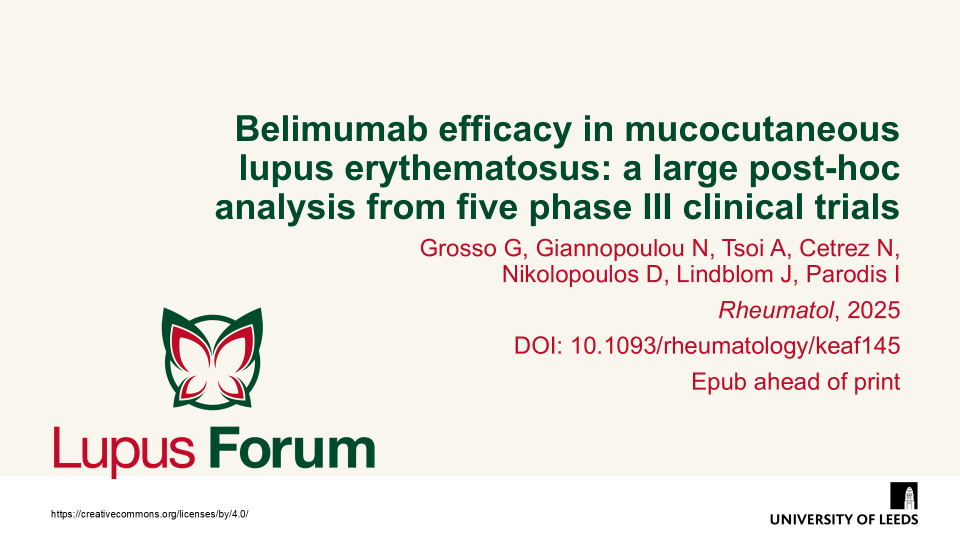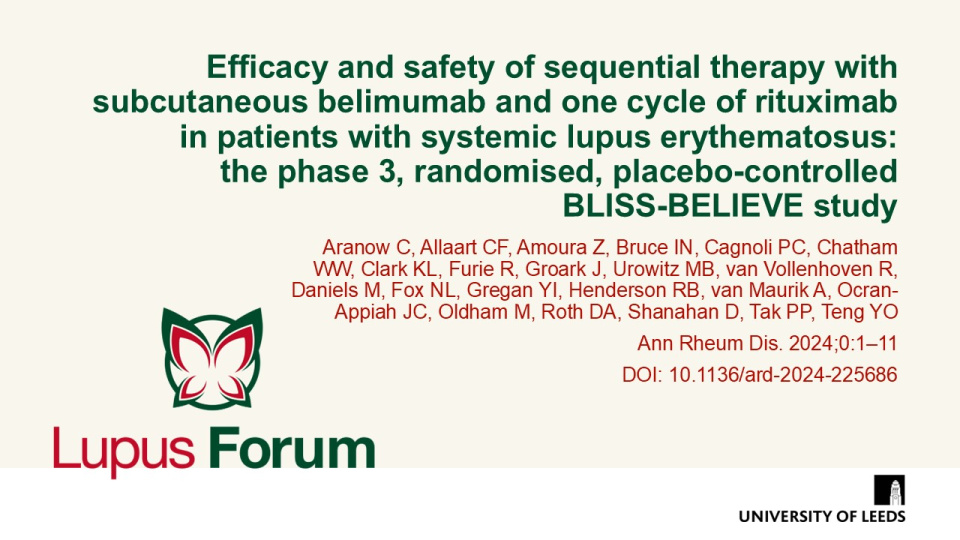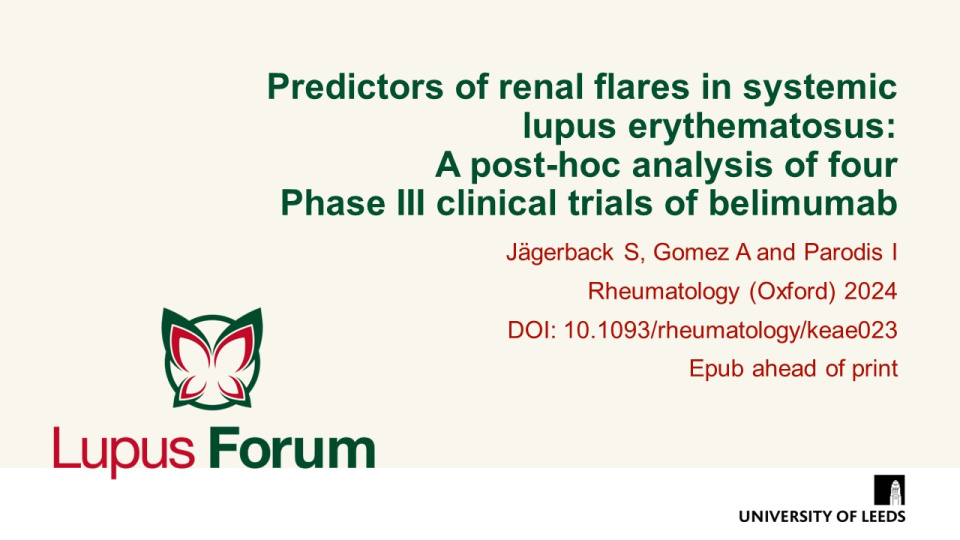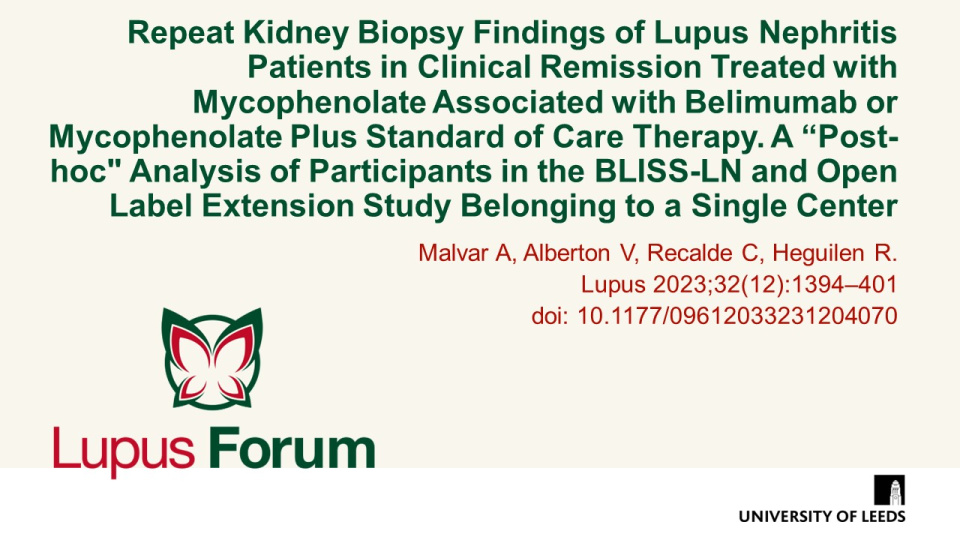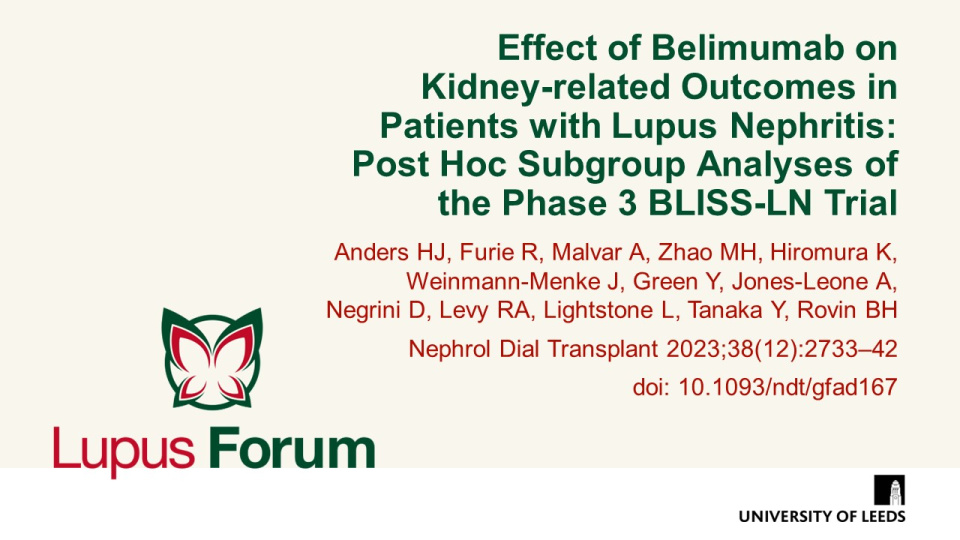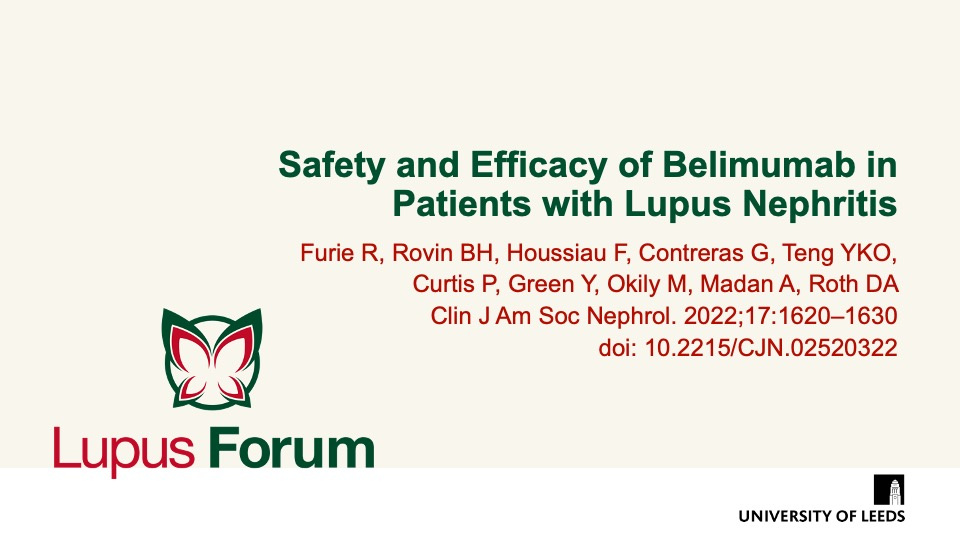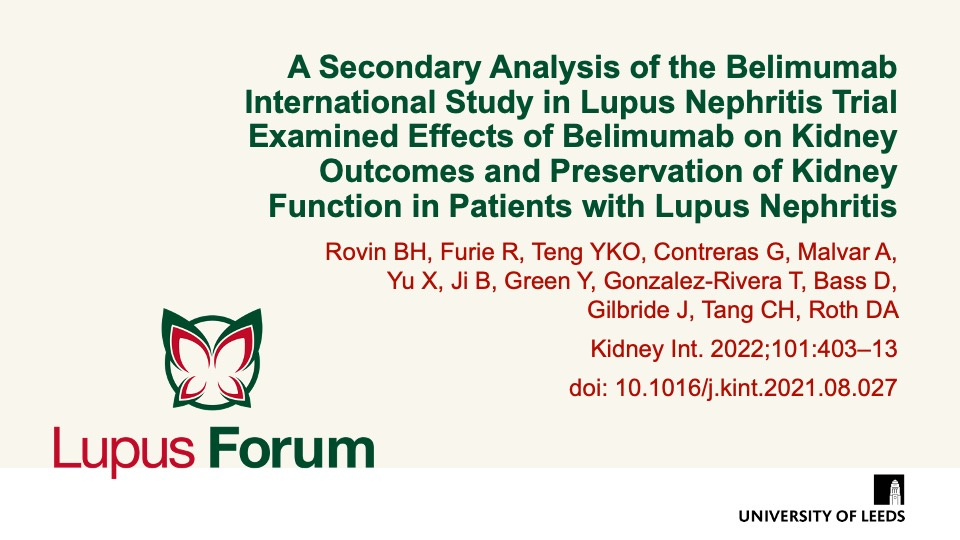Publications
Find coverage of the latest original articles on Lupus, focusing on those with data on therapeutic interventions and those that have clinical impact.
Unsupervised machine learning identifies distinct systemic lupus erythematosus patient endotypes with differential response to belimumab
Rheumatol (Oxford), 2025 DOI: 10.1093/rheumatology/keaf215. Epub ahead of print
Depascale et al. used unsupervised machine learning to identify three SLE endotypes based on B cell immunophenotyping and serological profiles. Belimumab was most effective in patients with transitional and naïve B cell enrichment (Cluster 2), where it significantly increased the likelihood of achieving sustained LLDAS and DORIS remission.
Keywords:
Belimumab efficacy in mucocutaneous lupus erythematosus: a large post-hoc analysis from five phase III clinical trials
Rheumatol, 2025. Epub ahead of print. DOI: 10.1093/rheumatology/keaf145
Grosso et al. conducted a post-hoc analysis of five phase III trials, including 3086 patients, to evaluate the efficacy of belimumab in improving mucocutaneous manifestations of SLE. The results demonstrated that belimumab significantly improved disease activity as measured by the mcBILAG and mcSLEDAI-2K indices compared with placebo and reduced flare rates in patients with high disease activity and serological positivity.
Keywords:
Efficacy and safety of sequential therapy with subcutaneous belimumab and one cycle of rituximab in patients with systemic lupus erythematosus: the phase 3, randomised, placebo-controlled BLISS-BELIEVE study
Ann Rheum Dis 2024;0:1–11 DOI 10.1136/ard-2024-225686.
Aranow et al. evaluated the efficacy and safety of combining subcutaneous belimumab with one cycle of rituximab in SLE. Sequential therapy did not show a statistically significant improvement in disease control over belimumab monotherapy, but did achieve nominally better reductions in disease activity markers.
Keywords:
Predictors of Renal Flares in Systemic Lupus Erythematosus: A Post-hoc Analysis of Four Phase III Clinical Trials of Belimumab
Rheumatology (Oxford) 2024 DOI: 10.1093/rheumatology/keae023 Epub ahead of print
High baseline proteinuria levels, hypoalbuminaemia, and C3 consumption were associated with
renal flare development. Renal flares remain common in patients with SLE, however causative factors are still largely unknown. Jagerback, et al. conducted a post-hoc analysis of pooled BLISS trial data to identify predictors of renal flares.
Keywords:
Repeat Kidney Biopsy Findings of Lupus Nephritis Patients in Clinical Remission Treated with Mycophenolate Associated with Belimumab or Mycophenolate Plus Standard of Care Therapy. A “Post-hoc" Analysis of Participants in the BLISS-LN and Open Label Extension Study Belonging to a Single Center
doi: 10.1177/09612033231204070 Epub ahead of print
Single-centre study concludes that adding belimumab to the standard of care treatment with mycophenolate (MMF) increases the possibility of achieving a complete clinical response (CCR), complete histological response (CHR), and a lower rate of relapses during treatment and long follow-up.
Effect of Belimumab on Kidney-related Outcomes in Patients with Lupus Nephritis: Post Hoc Subgroup Analyses of the Phase 3 BLISS-LN Trial
Nephrol Dial Transplant. 2023;38(12):2733–42 doi: 10.1093/ndt/gfad167 Epub ahead of print.
These data highlight the consistent benefit of belimumab versus placebo, combined with standard therapy, on kidney outcomes in both newly diagnosed and relapsed patients, and regardless of the use of GC pulses at induction.
Safety and Efficacy of Belimumab in Patients with Lupus Nephritis
Clin J Am Soc Nephrol. 2022;17:1620–1630 doi: 10.2215/CJN.02520322
This 28-week, open-label extension of BLISS-LN found no new safety signals and maintained efficacy with belimumab, in patients with lupus nephritis.
Keywords:
A secondary analysis of the Belimumab International Study in Lupus Nephritis trial examined effects of belimumab on kidney outcomes and preservation of kidney function in patients with lupus nephritis
Kidney Int. 2022;101(2):403-413 doi: 10.1016/j.kint.2021.08.027
Post-hoc analysis data suggests that the addition of belimumab to standard therapy may be effective in preserving long-term kidney function in patients with lupus nephritis (LN).


